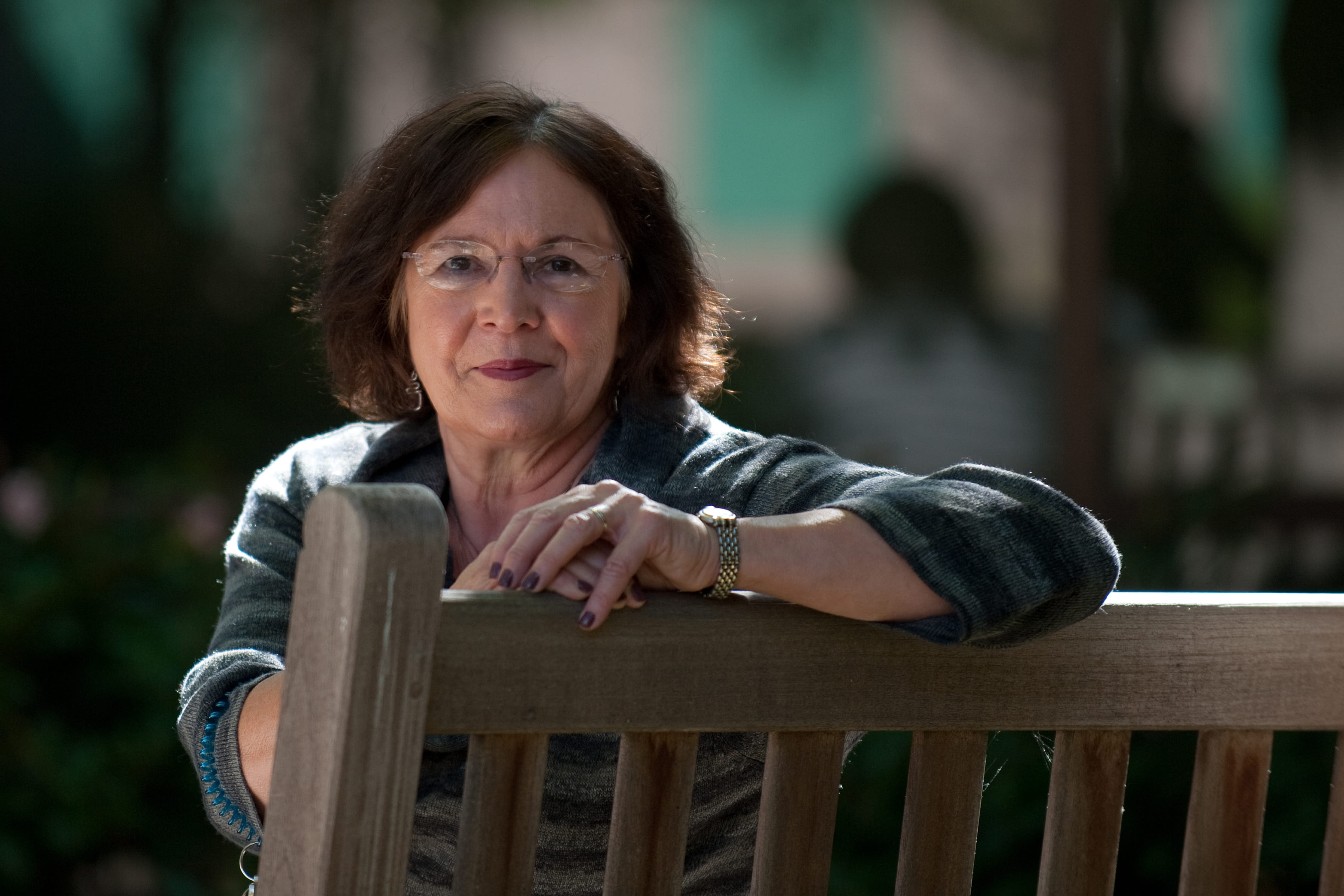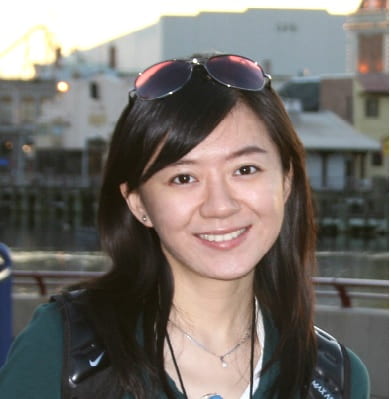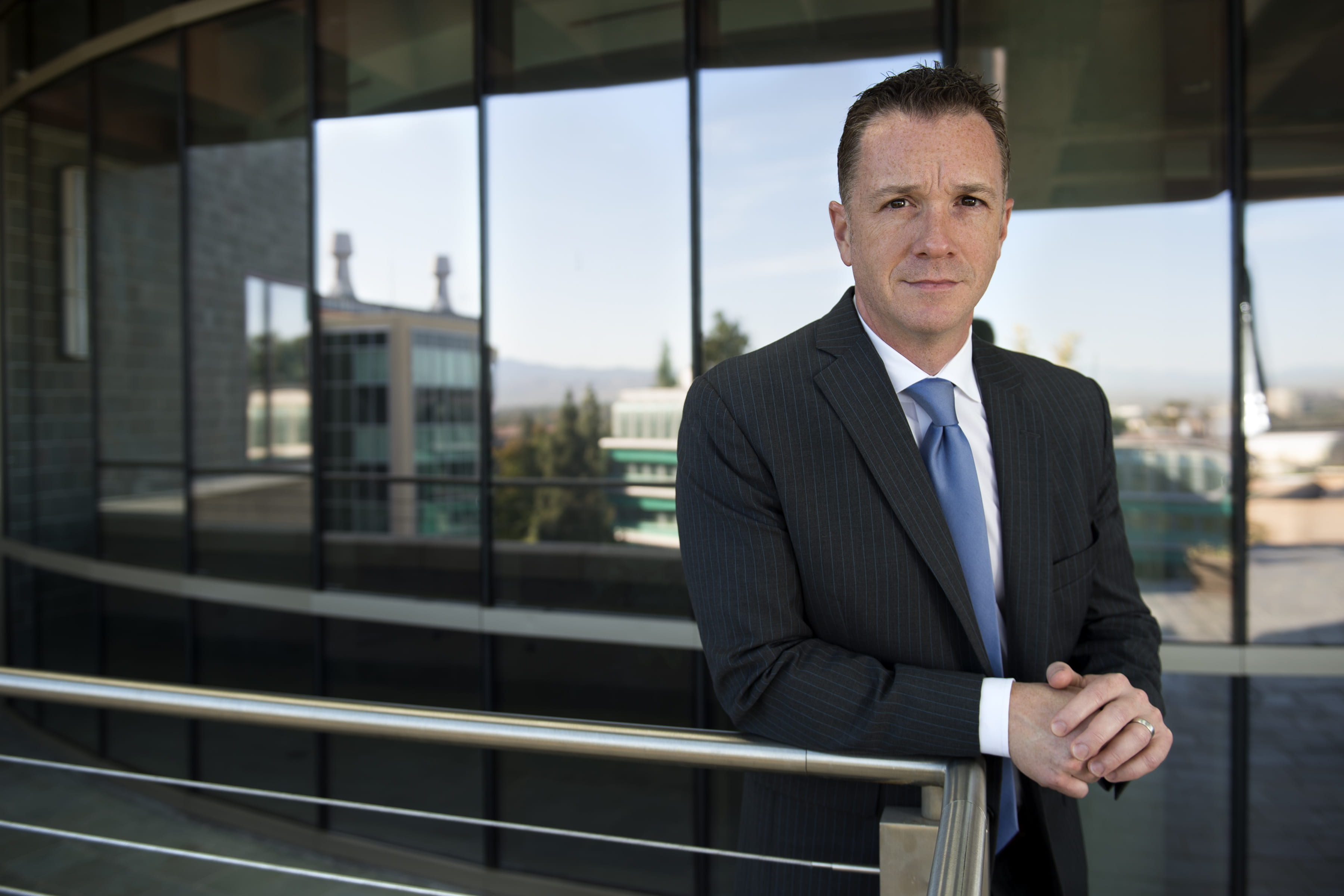There’s only one Nan
Longtime assistant Nan Collett helps superior memory research in James McGaugh’s lab run smoothly.

The middle-aged man fidgets, trying to remember, while a team of UC Irvine neurobiologists watches. In one corner, a bright-eyed woman holds a sheet of quiz questions, checking carefully as the man struggles to recall sports dates, events in his home town, and famous crimes. She shakes her head almost imperceptibly. In her mind, he doesn’t qualify as a superior memory subject.
“It was amazing that he remembered some things so well, but others not at all,” says Nan Collett. “Sometimes these people are nervous.”
Collett would know. As longtime assistant to neurobiology & behavior professor James McGaugh, she’s culled hundreds of e-mails and phone messages from people convinced their memory is superior. Only nine have panned out, many after Collett recognized they might have that extra something special that McGaugh and fellow UCI neurobiologist Larry Cahill’s team should evaluate. The researchers and their subjects are the focus of a CBS “60 Minutes” special scheduled to air Sun., Dec. 19.
Collett will tune in and remember. She still has the 10-year-old e-mail from Jill Price, who said she had a problem because she couldn’t forget. After a local newspaper story on Price was picked up across the globe, hundreds more potential subjects began calling. On McGaugh’s orders, Collett threw together the first memory quizzes, which have evolved into a central feature of the research. She started with the easy stuff – what she calls “a little Nerf ball – the day John F. Kennedy was assassinated.” For her, it was all part of the job.
In the UCI hierarchy of august chancellors, deans and professors, ambitious associate professors and overworked graduate students, there is only one Nan, as she is widely known. A Missouri native, Collett, 65, moved to Orange County in the 1960’s, and was thrilled to begin working at a university still rising from the bare earth. In 1975, Mrs. Nancy “Nan” Collett, as he identifies her in the full, became McGaugh’s assistant.
He picked her from the many office manager candidates on campus because he wanted an outstanding assistant, he says. “She gets things done in a quiet and highly effective way, making it appear as if I know what I’m doing. She just makes things work.”
Collett modestly asserts that she has been part of great staff and student teams working for McGaugh and the Center for Neurobiology & Memory.
Longtime neurobiology lecturer Heather Dickinson Anson gives her more credit: “She’s the Mary Poppins of UCI,” she says.
From the holiday treats she leaves on all graduate students’ and lab technicians’ benches to co-planning seamlessly organized international conferences and perfectly edited manuscripts, Collett is the ultimate coordinator. Perhaps her greatest contribution is her handling of an unexpected research bonanza for McGaugh late in his career: the so-called superior memory subjects who effortlessly recall exact dates of their lives and world events.
In addition to Price, there’s Brad Williams, the Wisconsin radio announcer dubbed “The Human Google” by colleagues. And Rick Baron, Bob Petrella, Sean Conlon, Devon Elgert, even movie star Marilu Henner.
It was Collett who primarily dealt with the crush of phone calls from journalists around the world after the superior memory story broke. Many are impatient with pushy media, but she sees it differently.
“They were desperate, you know. Just so anxious,” she says of the reporters from Canada, Australia and South America. Collett particularly enjoyed the “60 Minutes” crew. They were as organized as she is, though she doesn’t put it quite that way. The camera and sound crew took out all the furniture, moved everything around for the cameras, and then put it all back exactly as it had been
before they arrived.
“Wonderful people. They were just grand,” she says approvingly.
There’s a full team of undergraduate students doing quizzes now, led by graduate student Aurora Leport from neurobiology professor Cahill’s laboratory. A special email address has been set up for people who think they may be walking encyclopedias. But Collett still makes sure it all runs smoothly, coordinating visits by potential subjects and assisting the research teams. She enjoys the students’ and the researchers’ enthusiasm, and of course, the superior memory subjects.
She particularly likes the attitude of one of them, Louise Owen. It mirrors her own.
“Louise told us, ‘I realized if I was going to remember every day of my life, I was going to make the best of it.” Collett says.

